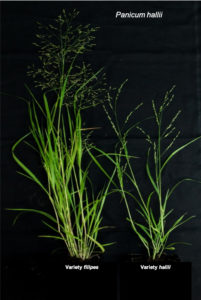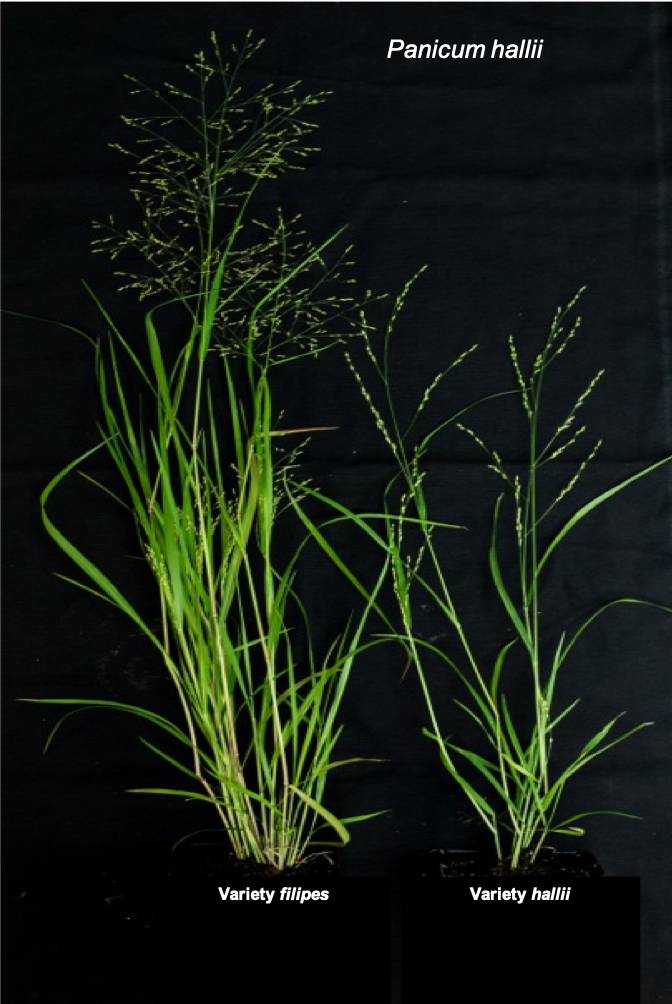
Representative morphology of Panicum hallii var. filipes and Panicum hallii var. hallii grown under controlled greenhouse conditions in Austin, Texas. Left is the FIL2 genotype; right is the HAL2 genotype. (Amalia Díaz)
Reported in Nature Communications, a team led by Tom Juenger at the University of Texas (UT) at Austin and including JGI researchers describe the culmination of nearly a decade of work to develop genomic resources for drought tolerance in perennial grasses. The team aims to apply the resources developed for Panicum hallii towards stress tolerance improvement in its more complex relative, the candidate bioenergy crop, switchgrass.
Through the JGI’s Community Science Program, JGI sequenced and assembled near-complete genomes of P. hallii var. hallii (99.2% complete) and P. hallii var. filipes (94.8% complete) and resequenced a host of natural collections from across the species range. With these high-quality reference genomes for P. hallii, researchers can identify and characterize the regulatory elements that influence adaptation and tolerance to stressors such as drought. This information can be applied toward improving crop yields in other grasses. Click here to read the JGI science highlight.




